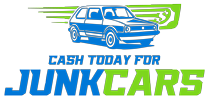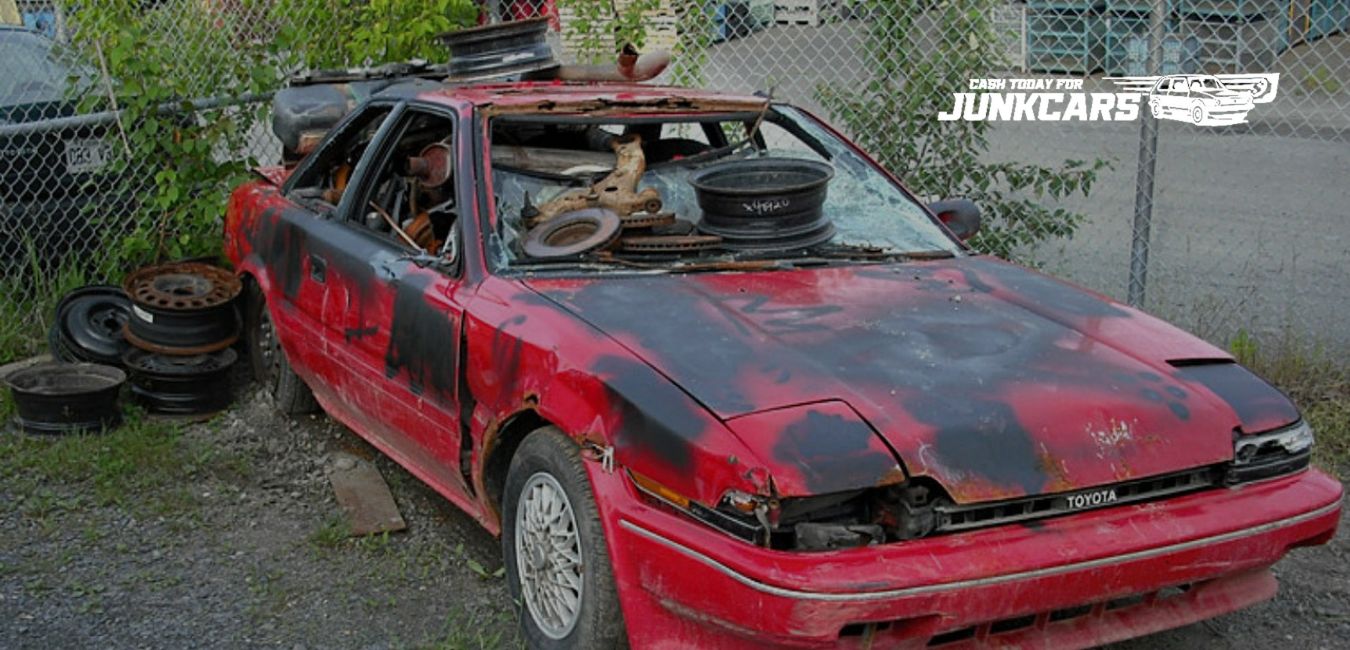Are you wondering, “How much to junk my car?” You’re not alone. Many car owners find themselves with an old or damaged vehicle and consider junking it. The good news is that junking your car is a smart move.
It’s a simple process that frees up space in your driveway and puts some extra cash in your pocket.
In this guide, we’ll explore the factors that affect the value of your junk car and provide you with the necessary steps to get the best deal. Let’s dive into the world of car junking and discover how it can benefit you!
Contents
Assessing Your Car’s Value

Vehicle’s Age
The age of your car plays a big role in its value. Generally, older cars have lower values. But vintage or classic cars are exceptions. They fetch higher prices. Understanding your car’s age helps you set realistic expectations for its junk value.
Mileage & Condition
Mileage and condition are key factors. Cars with high mileage or in poor condition usually bring less money. However, a well-maintained car with lower mileage can have a better value. Always assess your car’s overall state honestly to determine its worth accurately.
Market Demand
Market demand significantly impacts your car’s value. Popular models or those in high demand for parts sell for more. It’s wise to research the current market trends. This knowledge can help you get a better deal when junking your car.
Make & Model
The make and model of your car affect its junk value. Some brands and models are more sought-after, increasing their worth. Know the popularity and demand of your car’s make and model. This information can guide you in getting a fair price.
Salvage Title Considerations
Cars with a salvage title usually have lower values. This title means the car has significant damage or was deemed a total loss by insurance. However, even these cars have some value.
Be upfront about your car’s salvage title to negotiate the best price.
Getting Multiple Quotes
Online Valuation Tools
Online valuation tools offer a quick and easy way to estimate your car’s worth. Just enter your car’s details and get an immediate idea of its value.
This efficient method provides a solid base for understanding what you get for your car in today’s market.
Local Junkyards
Local junkyards are a great resource. Each gives you a different quote based on their needs and stock. It’s worth making a few calls or visits to get various quotes.
This helps you get a more accurate idea of your car’s value from local buyers.
Dealership Trade-In
Dealerships sometimes accept old cars as trade-ins. This option offers a lower price than selling privately, but it’s straightforward and quick.
It’s a good choice if you’re buying a new car and want to reduce its cost by trading in your old one.
Private Buyers
Selling to private buyers is more profitable. This option often leads to higher offers but requires more work, like advertising and meeting with buyers.
When you’re willing to put in the effort, selling privately can bring you a better return on your car.
Comparison Shopping
It’s important to compare all your quotes. After gathering offers from various sources, compare them to identify the best one. This step ensures you maximize the value of your junk car.
Taking the time to research and compare can make a significant difference in the final price you receive.
Preparing Your Car
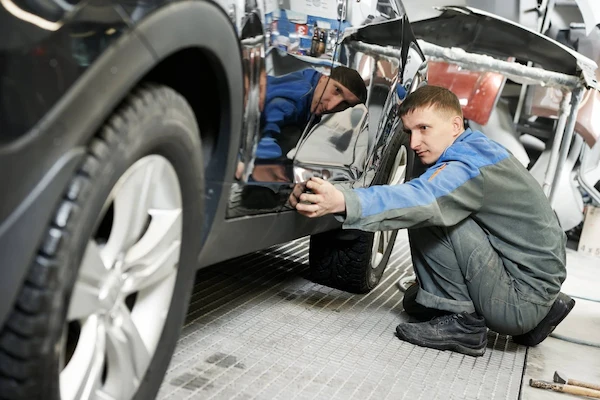
Remove Personal Items
Before you junk your car, make sure to remove all personal items. Check every nook and cranny, from the glove compartment to under the seats. This step is crucial to keep everything valuable and personal in your car before it’s handed over.
Gather Documentation
Collecting your car’s paperwork is key. Ensure you have the title, which proves ownership. Also, gather any service records or receipts. These documents are vital for the sale. They help verify the car’s history and make the process go smoothly.
Having everything in order makes selling your car faster and easier.
Empty Fuel & Fluids
It’s safe and responsible to empty all fuel and fluids from your car before junking it. This includes gasoline, oil, and coolant. Draining these liquids helps prevent spills and environmental hazards. Plus, it’s often a requirement from junkyards for safety reasons.
Disconnect Battery
Disconnecting the battery is an important safety step. It prevents potential short circuits or other electrical issues while handling the car. Removing the battery also adds value, as it can be recycled separately. Make sure to do this carefully and safely.
Tow Or Drive To Yard
Decide whether to tow or drive your car to the junkyard. When it’s operational, driving it saves towing costs. However, arrange for a tow if your car is not running.
Some junkyards offer towing services, so it’s worth asking if they can assist with transportation.
Negotiating The Deal
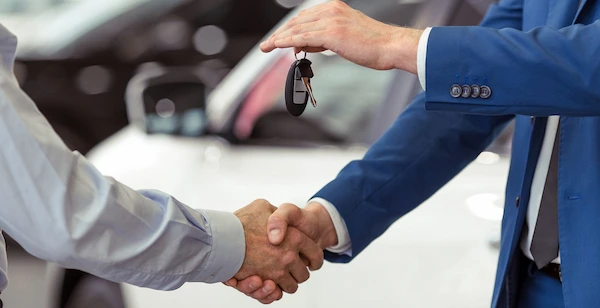
Be Informed
Being well-informed is crucial in negotiations. Conduct thorough research on your car’s market value and understand its condition and demand. This knowledge equips you to argue your car’s worth effectively.
A well-informed seller can confidently negotiate and ensure a fair deal for their vehicle.
Price Haggling
Effective haggling is key to a good deal. Start with a reasonable yet slightly higher asking price than your bottom line. Be open to negotiation, but know your lowest acceptable price.
Good haggling is about finding a balance where you and the buyer feel satisfied with the final agreement.
Additional Costs
Consider any additional costs that come up. These can include towing fees or charges from the junkyard. Clarify these details in advance to avoid any surprises later.
Understanding all potential costs helps you accurately evaluate the offers you receive, ensuring you make the best decision.
Payment Options
Discussing payment options is important. Most buyers offer cash or check. Decide which method you prefer and confirm it with the buyer. Ensure the payment process is secure and you understand the terms.
Clear communication about payment helps avoid any misunderstandings and secures a smooth transaction.
Finalizing The Sale
Finalize the sale with attention to detail. Make sure all paperwork is correct and complete. Sign the necessary documents and keep copies for yourself. Confirm the payment details and arrangements for the car’s pickup.
Once everything is settled and agreed upon, you’ve completed the sale.
FAQs
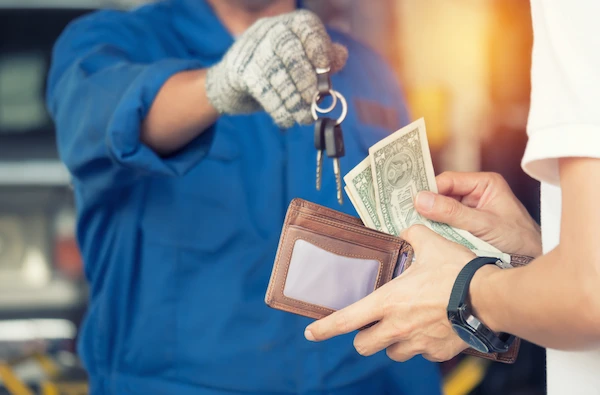
1. How Much Scrap Do You Get For A Car?
The amount of scrap you get from a car varies. It depends on the car’s weight, condition, and current scrap metal prices. On average, you can expect to receive a few hundred dollars. This value fluctuates with market conditions.
2. Who Pays The Highest Price For Junk Cars?
The highest price for junk cars often comes from specialized junk car buyers or salvage yards. These buyers assess the car’s value based on its parts and metal content. To get the best price, compare offers from several buyers and negotiate effectively.
How Much To Junk My Car: Conclusion
If you are still wondering, “how much to junk my car”, it is a straightforward process. Remember, the value depends on your car’s condition, make, model, and the current market.
By being informed, comparing quotes, and negotiating wisely, you can get the best deal for your vehicle. Junking your car helps clear space and offers a chance to earn extra cash.
With the right approach, you can turn what seems like an end for your car into a rewarding opportunity. So, take that step and discover the value of your old car!

